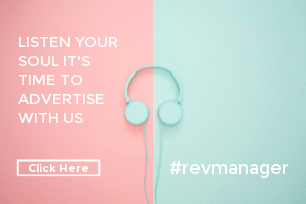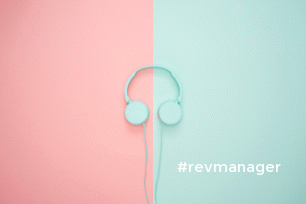After so much effort, commitment and investment in a website rich in content that appeals to your hotel and all the experiences it offers, you now note that the conversion rate does not rise and that most visitors end up leaving without any intention of booking or generating any contact with you. There has been a great deal of work getting attention and directing to the hotel website. It was an achievement, but in fact it was only half the process, because it had no effect.
Are we offering what the visitors expected?
Are we not as appealing as we thought we were?
Is it a price issue?
Is it a product positioning question?
Today customers are enlightened and many are the issues to which we have to pay attention...
These days, the consumer has tools that help him choose the right offer as well as suggestions for best deals. He travels the web by searching and comparing all the options with great ease, with the certainty that the ideal product will be around the corner. It is in this shopping experience that we may be being harmed, as several hotel websites are visited and abandoned during the comparison process. This is how our conversion rate is deeply affected, as more and more people abandon their booking process without completing the purchase.
It's up to the hotelier to overcome it, but how?
Must take into account the already published in the previous article [How to tune your website with the new e-Commerce requirements?] (Https://revmanager.eu/ecommerce-challenges-trends/), not neglecting the simplicity of shopping experience, and take note of the following points:
*About 40% of visitors search various hotel websites before booking, especially if they find the price high;
*There is often a need to confirm the choice with someone, and this consultation may result in a subsequent visit that lead to a conversion;
*Although not very representative, there is always also the case of technical issues, such as error of the website, server or even internet connection. This can condition the completion of the booking process.
Confirm your hotel website "First Impression" among your competitors and industry players, this will influence if there will be a second visit. Build trust, study the target audience and adapt your website in order to show relevant information to whoever visits it.
There are several examples that show that special offers and promotions grab attention and easily convert into bookings. Exclusive offers should have a special highlight with increased visibility, this is your differentiating point. Always keep this information carefully up to date.
Ratify that your calls to action[1] are well-structured, these should be quickly identified and without generating any confusion. Should lead as quickly as possible to a conversion, be creative and attractive when establishing CTAs, as well as always keep active retargeting campaigns.
Did an issue arise?
The visitor was faced with a doubt in the middle of the booking process. Without possibility of clarification at that moment, decides to leave the page. In the digital world there are several chat solutions that accompany the entire visitor's journey. You can analyze the trajectory, the time he takes on each page as well as make suggestions. A quick approach through the website, welcoming the visitor, will inform him about our availability to help along the way at any time. If any impasse is felt during the visit or shopping experience, such as an unusual delay on a particular page, a second approach is crucial to the conversion as well as establishing a close relationship and personalizing the service.
Will this be the best price guaranteed?
We have already talked about the visitors need to have the confirmation of his best choice, he travels the web looking for the lowest price for the same offer. Why not show immediately in your booking engine that your price matches, or even breaks those displayed on other channels? A simple tool may prevent the visitor from jumping and completing the purchase on another channel, or in a worse case, losing the potential guest to a competitor hotel.
Retargeting
Retargeting techniques are extremely effective when visitors leave the website, saving their decision for a later moment. They may have lost interest for a several reasons, which may not be related to the value of your product or they may just have to consult someone who might influence that decision. It would be an effort in vain after so much investment in capturing the visitor and then losing him one step away from conversion. This is a situation we should avoid at all costs, however, it is part of the reality for many companies - a big part of the investment is lost. This happens when we do not take advantage of a valuable digital marketing technique like Retargeting.
With a well-executed retargeting campaign, a person who enters your website triggers cookies, which in turn triggers campaigns of your products in that person's browser. These will be displayed by various web spaces where that person will navigate after leaving your page. To do this, are used ads from an advertising display network, where your product will be displayed.
This will not only put the product and its brand in the target of the potential client, remembering it at every moment, but also can be created specific offers for this campaign, with price reductions, other offers, whatever you wish. The opportunity to convert on sale goes up effectively.
To use a concrete example, consider the following situation
It was vacation scheduling day on my company, I think I have to request the days to the human resources department and I decide to give it a try with some possible dates. I take advantage of the moment and I check opportunities in hotels for the chosen dates at that long-awaited destination. I find one in the search engines with fantastic features and according to my budget. However I decide also to include more services for my stay and I choose the room type in a package with SPA treatments. These are going to be my dream vacations and I already have everything planned. Location, price and type of offer, I'm only one step away from entering name and data for payment. As I had not yet spoken to my husband, I jump out to be able to suggest what I found and close the browser.
In a retargeting situation, in the next visits to the web, or to the social networks, I am reminded of the purchase that was not finalized. The hotel appears in multiple targeted ads, whether it's while I read the news, or on my social network, or even while I search for the location of the nearest pharmacy.
The idea is present in all online movements, one day I am faced with a 15% discount on the stay. It is at this very moment that I decide, I pick up the phone and confirm my intention with my husband. I click on the ad and end the purchase I had previously started thus completing my reservation.
The process works so well that around 70% of visitors who are subject to retargeting campaigns complete their purchases.
Retargeting is undoubtedly one of the best ways to invest your marketing budget. The invested capital will be directed to consumers who have already shown interest in your offers, so the ROI[2] is high. The process of creating the campaign is very flexible, since it allows you to create differentiated offers depending on several factors, such as: depending on the point of the purchase process where the abandonment occurred, if the visitor had already chosen the offer in concrete, among others. You can only recall your product if it was an abandonment at a premature stage, or even offer a discount if the abandonment was already at an advanced stage of the purchase process. You don't even have to take into account price parity to which many of OTAs oblige, since the offer is private.
Retargeting or Remarketing?
If you are questioning retargeting and remarketing, there is a use both terms and this creates confusion for users. Remarketing, consecrated by google in google ads, is nothing more than a retargeting campaign with google tools, where they have a more holistic and global view of retargeting techniques.
Final Considerations
After defining a marketing plan that takes visitors to your website, where the whole process is optimized in order to take the visitor directly to the purchase, we must always analyze the behavior of the visitor in a meticulous way. A high abandonment rate can be due to various causes. Ensure the effectiveness of your plan by:
- Testing First Impression compared to your competitors
- Checking if the price or product needs adjustments
- Giving immediate support to any question
- Taking advantage of retargeting techniques



